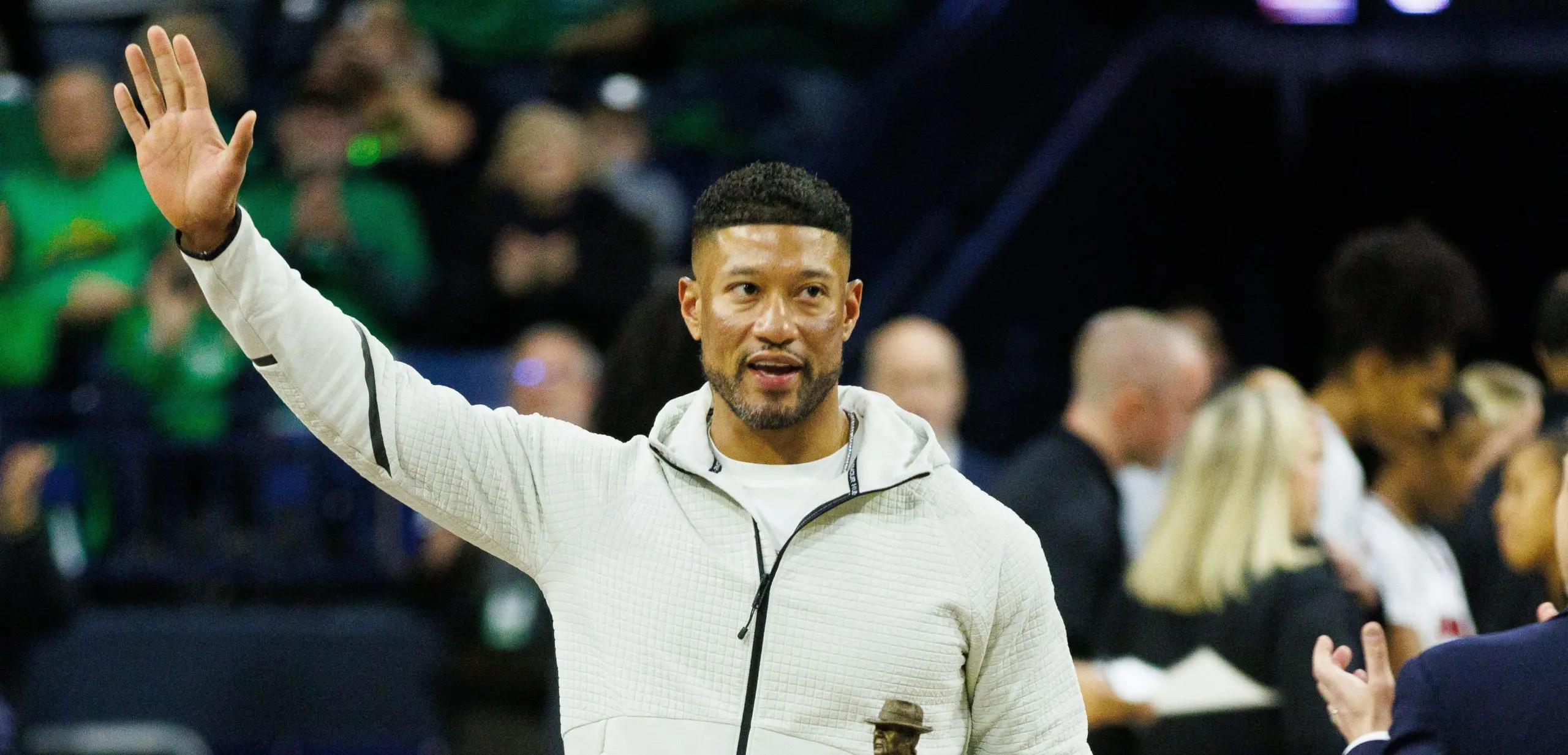Marcus Freeman’s Recruiting Mastery Faces Crucial Test as Notre Dame’s 5-Star Commit Teeters on Decommitment Edge
Marcus Freeman’s tenure as head coach at Notre Dame has been marked by a significant transformation in the program’s recruiting efforts. Since taking the helm in December 2021, Freeman has prioritized building a roster brimming with elite talent, aiming to elevate the Fighting Irish to national prominence. His strategies have yielded impressive results, with Notre Dame securing some of its most highly-rated recruiting classes in recent history. However, as the 2025 recruiting cycle intensifies, Freeman faces a pivotal challenge: retaining a coveted 5-star commitment who is now wavering.
Under Freeman’s leadership, Notre Dame has experienced a notable surge in recruiting success. The 2024 class, for instance, boasted a 91.85 per-player average rating, marking one of the program’s highest in recent years. This uptick is attributed to Freeman’s proactive approach, which includes personalized outreach and a commitment to building genuine relationships with recruits and their families . Additionally, Freeman’s emphasis on identifying and developing talent has led to the acquisition of several high-profile players, such as quarterback C.J. Carr and linebacker Drayk Bowen.
Despite these successes, the program’s momentum faces a potential setback. A 5-star recruit, once a firm commitment, has recently expressed reservations about his decision to join Notre Dame. This development has sent ripples through the recruiting community, raising questions about the factors influencing this change of heart. While the specifics of the recruit’s concerns remain undisclosed, such instances are not uncommon in the high-stakes world of college football recruiting.
The timing of this uncertainty is particularly critical. With the early signing period approaching, Freeman and his staff must intensify their efforts to reaffirm the recruit’s commitment. This involves addressing any concerns, providing clarity about the program’s direction, and reinforcing the mutual benefits of the recruit’s decision to join Notre Dame. Given the competitive nature of college football recruiting, losing a 5-star prospect could have implications not only for the team’s immediate future but also for its long-term recruiting strategy.
Freeman’s track record suggests he is well-equipped to navigate this challenge. His tenure has been characterized by resilience and adaptability, qualities that will be essential in this situation. By leveraging the relationships he has cultivated and demonstrating the program’s commitment to developing elite talent, Freeman can work to retain this prized commitment. The outcome of this endeavor will likely influence the trajectory of Notre Dame’s recruiting efforts in the coming years.
In conclusion, while Marcus Freeman has made significant strides in enhancing Notre Dame’s recruiting landscape, the program now faces a critical test. The wavering commitment of a 5-star recruit underscores the challenges inherent in the recruiting process. How Freeman and his staff respond to this challenge will be telling, potentially setting the tone for Notre Dame’s recruiting endeavors in the future.



